
Oliver Cromwell was a politician and soldier, widely regarded as one of the most important statesmen in English history. He came to prominence during the 1639 to 1653 Wars of the Three Kingdoms, first as a senior commander in the Parliamentarian army and then as a politician. A leading advocate of the execution of Charles I in January 1649, which led to the establishment of The Protectorate, he ruled as Lord Protector from December 1653 until his death in September 1658. Cromwell nevertheless remains a controversial figure in both Britain and Ireland, due to his use of the military to first acquire, then retain political power, and the brutality of his 1649 Irish campaign.
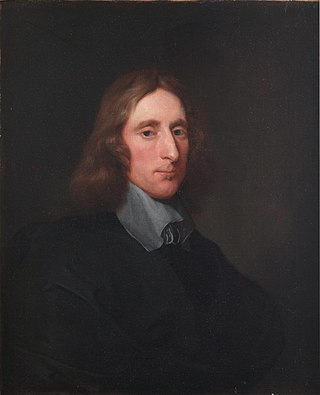
Richard Cromwell was an English statesman who was the second and last Lord Protector of the Commonwealth of England, Scotland and Ireland and son of the first Lord Protector, Oliver Cromwell.

The Protectorate, officially the Commonwealth of England, Scotland and Ireland, refers to the period from 16 December 1653 to 25 May 1659 during which England, Wales, Scotland, Ireland and associated territories were joined together in the Commonwealth of England, governed by a Lord Protector. It began when Barebone's Parliament was dismissed, and the Instrument of Government appointed Oliver Cromwell Lord Protector of the Commonwealth. Cromwell died in September 1658 and was succeeded by his son Richard Cromwell.
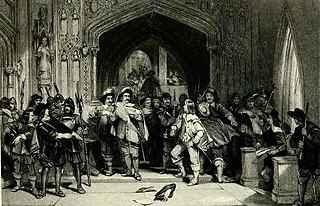
Colonel Thomas Pride was a Parliamentarian commander during the Wars of the Three Kingdoms, best known as one of the regicides of Charles I and as the instigator of Pride's Purge.
Colonel Sir Richard Ingoldsby was an English officer in the New Model Army during the English Civil War and a politician who sat in the House of Commons variously between 1647 and 1685. As a Commissioner (Judge) at the trial of King Charles I, he signed the king's death warrant but was one of the few regicides to be pardoned.

After the final Royalist defeat of the English Civil War against Cromwell's New Model Army at the Battle of Worcester on 3 September 1651, the future Charles II of England was forced to flee, famously avoiding detection by hiding in an oak tree in a wood that was being searched by Parliamentarian soldiers. A £1000 reward was announced for information leading to Charles's capture. Relying on the support of a network of Royalist gentry, Charles first attempted to escape into Wales, then to Bristol disguised as a servant, then to the south coast at Charmouth disguised as an eloping lover. Finally, he rode east to Shoreham from where he took a coal boat to France on 15 October 1651.

Father John Huddleston was an English Roman Catholic priest, and a monk of the Order of St. Benedict who helped Charles II during his escape and was present when Charles converted to the Catholic faith on his deathbed.
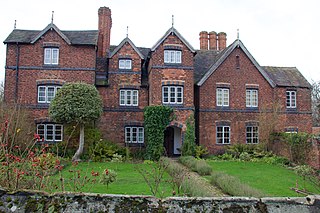
Moseley Old Hall is located in Fordhouses, north of Wolverhampton in the United Kingdom. It is famous as one of the resting places of Charles II of England during his escape to France following defeat at the Battle of Worcester in 1651. It is now a National Trust property.
Sir Thomas Foote, 1st Baronet was a wealthy Citizen and grocer of London. He was Lord Mayor of the City of London in 1649. During the Protectorate he was knighted by the Lord Protector Oliver Cromwell in 1657, and after the Restoration (England) he was made a baronet by Charles II.
Edmund Dunch, 1st Baron Burnell of East Wittenham (1602–1678) was an English Member of Parliament who supported the Parliamentary cause before and during the English Civil War. During the Interregnum he sat as a member of parliament. In 1659, after the Protectorate and before the Restoration, regaining his seat in the Rump he also sat in Committee of Safety. After the restoration of the monarchy he was not exempted under the Act of Pardon and Oblivion but the titles granted to him under the Protectorate were not recognised under the restored monarchy of Charles II.

John Claypole was an officer in the Parliamentary army in 1645 during the English Civil War. He was created Lord Claypole by Oliver Cromwell, but this title naturally came to an end with the Restoration of 1660.
The Other House, established by the Lord Protector Oliver Cromwell under the terms of the Humble Petition and Advice, was one of the two chambers of the parliaments that legislated for England and Wales, Scotland, and Ireland, in 1658 and 1659, the final years of the Protectorate.
This is a timeline for the English Civil War in Shropshire.
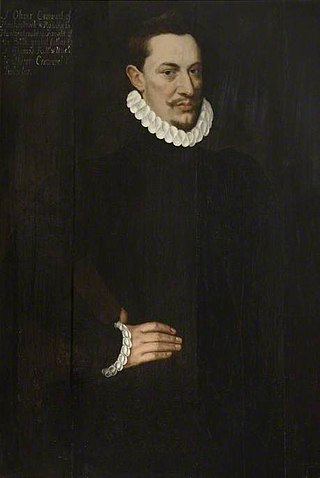
Sir Oliver Cromwell was an English landowner, lawyer and politician who sat in the House of Commons at various times between 1589 and 1625. He was the uncle of Oliver Cromwell, the Member of Parliament, general, and Lord Protector of England.
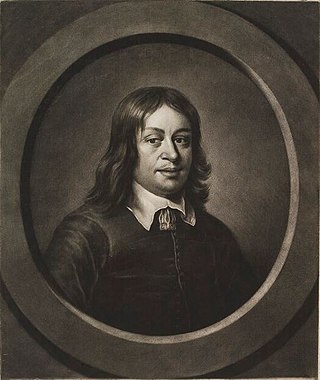
Richard Penderel was a Roman Catholic farmer, and a supporter of the Royalist cause during the English Civil War. He assisted with the escape of Charles II after the Battle of Worcester in September 1651.
Sir Richard Chiverton of the Worshipful Company of Skinners was Lord Mayor of London in 1658.

John Copleston was a 17th-century English army officer, a supporter of the Parliamentary cause in the English Civil War and Interregnum (England)
Sir John Reade, 1st Baronet has the unusual distinction of being granted a baronetcy by both Charles I and the Lord Protector Oliver Cromwell.
During the Protectorate period (1653–1659) of the Commonwealth of England, the Lord Protector reserved the power previously held by the monarch to confer knighthoods, baronetcies and peerages.
Sir Richard Combe of Hemel Hempstead, was knighted by the Lord Protector Oliver Cromwell during the Interregnum and again shortly after the Restoration by Charles II.
![]() This article incorporates text from a publication now in the public domain : Herbermann, Charles, ed. (1913). "John Huddleston". Catholic Encyclopedia . New York: Robert Appleton Company.
This article incorporates text from a publication now in the public domain : Herbermann, Charles, ed. (1913). "John Huddleston". Catholic Encyclopedia . New York: Robert Appleton Company.








